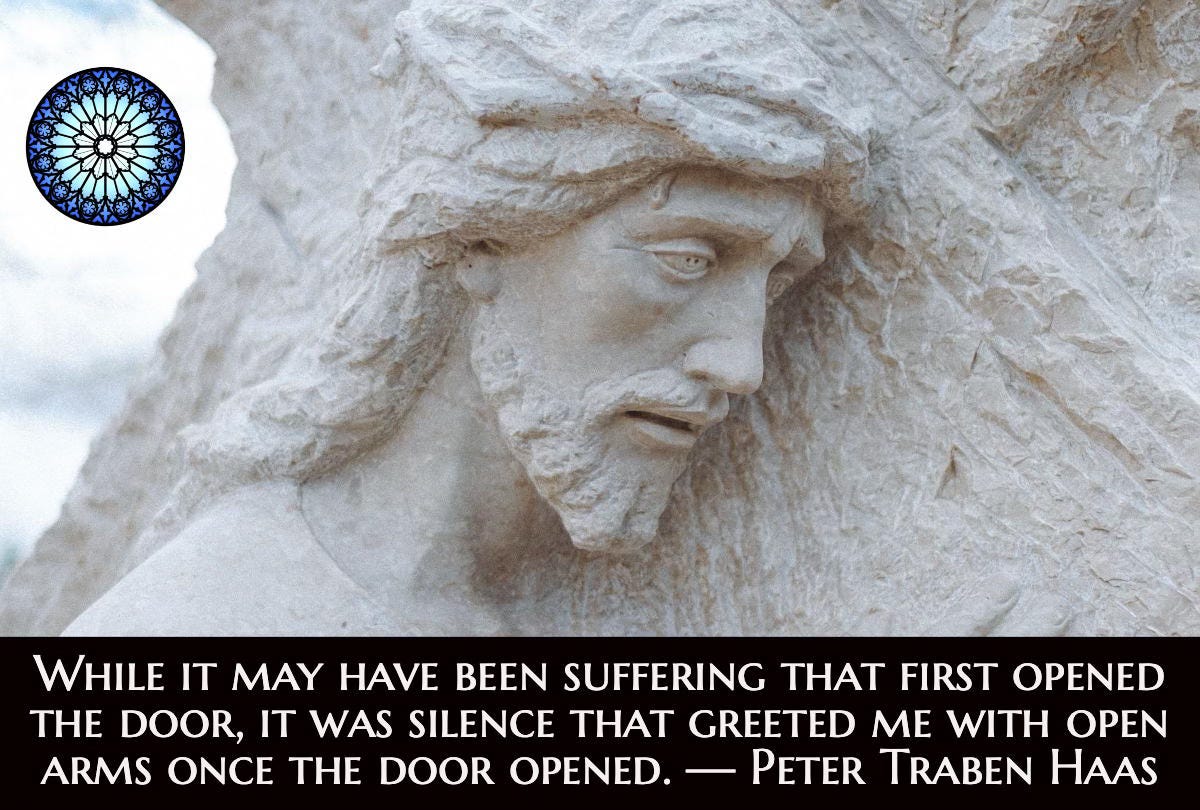After the Door is Opened
Whatever may lead us into the contemplative life, it is silence that meets us there.
While it may have been suffering that first opened the door, it was silence that greeted me with open arms once the door opened. — Peter Traben Haas
I once heard Richard Rohr give a talk in which I recall him suggesting that there are three reliable doorways into the spiritual life: great love, great suffering, and contemplative prayer. That was well ove…




